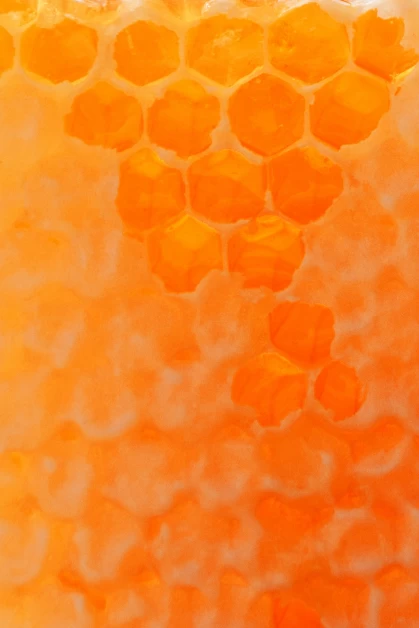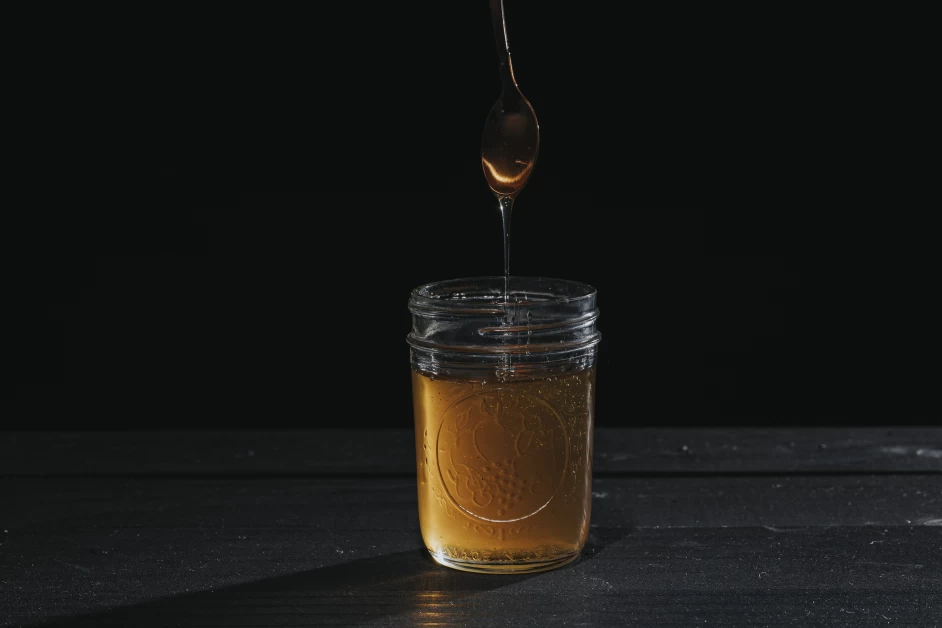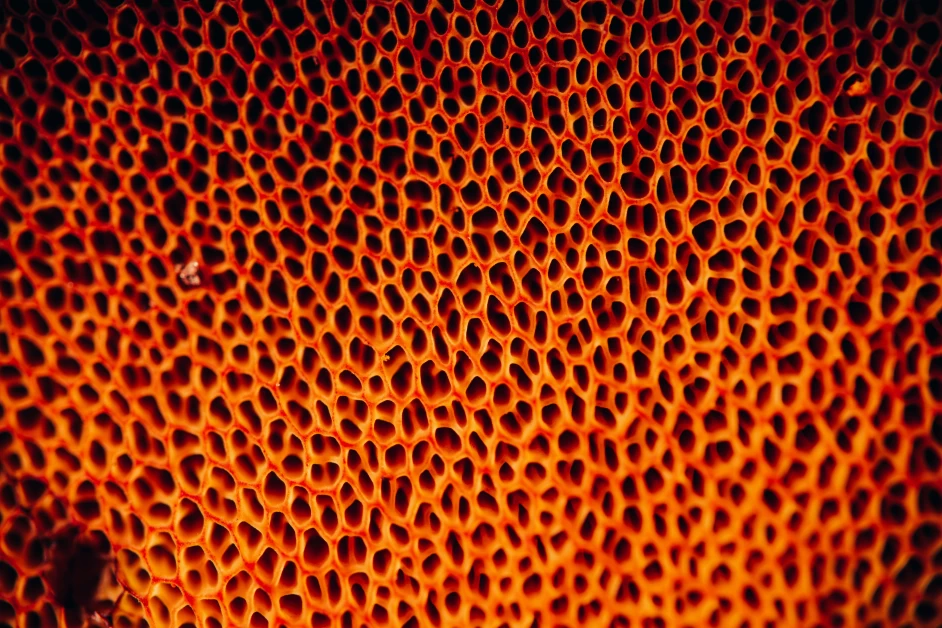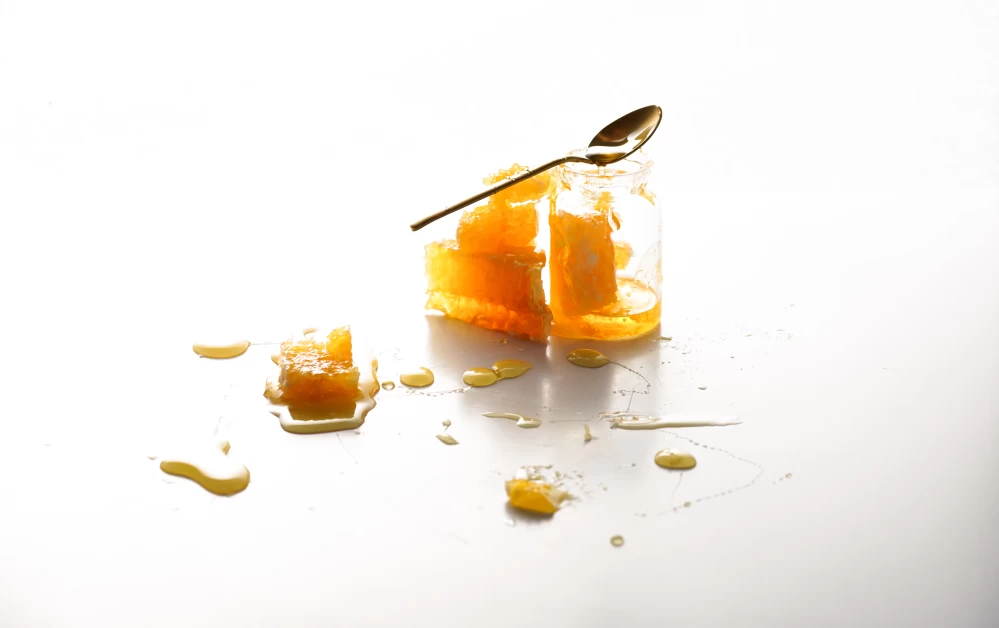Table of Contents
Introduction
Honey has been used for medicinal purposes for thousands of years. In recent years, there has been a renewed interest in the medicinal properties of honey, particularly in Manuka honey. Manuka honey is a monofloral honey that is produced by bees that feed on the flowers of the Manuka tree (Leptospermum scoparium), which is native to New Zealand and parts of Australia. Manuka honey is known for its unique properties, including its antibacterial and anti-inflammatory effects, making it a popular choice for wound care and other therapeutic applications. This article will review the chemical composition, health benefits, and therapeutic applications of Manuka honey for respiratory health.
Chemical Composition of Manuka Honey
Manuka honey has a unique chemical composition that distinguishes it from other types of honey. It contains a range of bioactive compounds, including phenolic acids, flavonoids, enzymes, and proteins. The following are some of the key compounds found in Manuka honey:
Unique Manuka Factor (UMF)
UMF is a rating system used to measure the antibacterial activity of Manuka honey. It is based on the concentration of methylglyoxal (MGO) and other compounds in the honey. The higher the UMF rating, the higher the antibacterial activity of the honey. (1)
Methylglyoxal (MGO)
MGO is a natural compound found in high concentrations in Manuka honey. It is responsible for the antibacterial activity of the honey and is believed to be the main factor that contributes to its therapeutic properties. (2)
Leptosperin
Leptosperin is a phenolic compound that is found exclusively in Manuka honey. It is used as a marker to authenticate the authenticity of Manuka honey. (3)
Dihydroxyacetone (DHA)
DHA is a naturally occurring compound found in the nectar of the Manuka tree. It is converted into MGO during the honey-making process. (4)
Health Benefits of Manuka Honey
The unique properties of Manuka honey make it a popular choice for a range of health benefits, particularly for respiratory health. The following are some of the key health benefits of Manuka honey for respiratory health:
Antimicrobial Properties
Manuka honey has potent antimicrobial properties that make it effective against a wide range of bacteria, including antibiotic-resistant strains. These antimicrobial properties can help to protect the respiratory system from bacterial infections and promote overall respiratory health. (5)
Anti-inflammatory Effects
Manuka honey has anti-inflammatory effects, making it effective in treating respiratory conditions that involve inflammation, such as asthma and allergies. The anti-inflammatory properties of Manuka honey can help to reduce inflammation in the respiratory tract and improve breathing. (8)
Antioxidant Properties
Manuka honey is rich in antioxidants, which can help to protect the respiratory system from oxidative stress and prevent the development of chronic respiratory diseases. Antioxidants can help to neutralize harmful free radicals in the respiratory tract and promote overall respiratory health. (9)
Immune System Support
Manuka honey has been shown to support immune system function, which is important for maintaining respiratory health. The bioactive compounds in Manuka honey can help to boost the immune system and enhance its ability to fight off respiratory infections. (15)
Therapeutic Applications of Manuka Honey
Manuka honey has a wide range of therapeutic applications for respiratory health. The following are some of the key therapeutic applications of Manuka honey:
Treatment of Respiratory Infections
Manuka honey can be used as a natural remedy for respiratory infections, such as colds, flu, and sinusitis. Its antimicrobial and immune-boosting properties can help to combat the underlying infection and promote faster recovery. (11)
Soothing a Sore Throat
Manuka honey can provide relief for a sore throat by coating the throat and reducing inflammation. Its antibacterial properties can also help to combat any bacterial infection that may be causing the sore throat. (11)
Relieving Cough
Manuka honey can help to soothe a cough by coating the throat and reducing irritation. Its antimicrobial and anti-inflammatory properties can also help to address the underlying cause of the cough, such as a respiratory infection or inflammation. (11)
Supporting Overall Respiratory Health
Regular consumption of Manuka honey can help to support overall respiratory health by boosting the immune system, reducing inflammation, and protecting against oxidative stress. It can be included as part of a healthy diet to promote optimal respiratory function. (11)
Challenges and Future Perspectives
Despite the numerous health benefits of Manuka honey for respiratory health, there are several challenges associated with its production and use. These include the difficulty of standardizing the production process to ensure consistent quality and efficacy of the honey, as well as the risk of fraudulent labeling and misrepresentation of Manuka honey products. (13)
To address these challenges, efforts are being made to develop standardized methods for the production and testing of Manuka honey, as well as to establish regulatory guidelines to ensure the authenticity and quality of Manuka honey products. Ongoing research into the therapeutic applications of Manuka honey, including its potential use in cancer treatment and its role in promoting gut health and immune function, holds promise for further unlocking its potential as a powerful therapeutic agent. (14)
Conclusion
Manuka honey has unique properties that make it beneficial for respiratory health. Its chemical composition, including compounds like MGO and UMF, gives it potent antibacterial, anti-inflammatory, and antioxidant properties. These properties contribute to its ability to promote respiratory health, including combating respiratory infections, soothing sore throats, relieving coughs, and supporting overall respiratory function. Despite challenges in production and labeling, ongoing research and efforts to standardize methods hold promise for further unlocking the potential of Manuka honey for respiratory health.
References:
1. https://aboutmanukahoney.com
2. https://aboutmanukahoney.com
3. https://aboutmanukahoney.com
4. https://aboutmanukahoney.com
5. https://aboutmanukahoney.com
6. https://aboutmanukahoney.com
7. https://aboutmanukahoney.com
8. https://aboutmanukahoney.com
9. https://aboutmanukahoney.com
10. https://aboutmanukahoney.com
11. https://aboutmanukahoney.com
12. https://aboutmanukahoney.com
13. https://aboutmanukahoney.com
14. https://aboutmanukahoney.com
15. https://aboutmanukahoney.com









